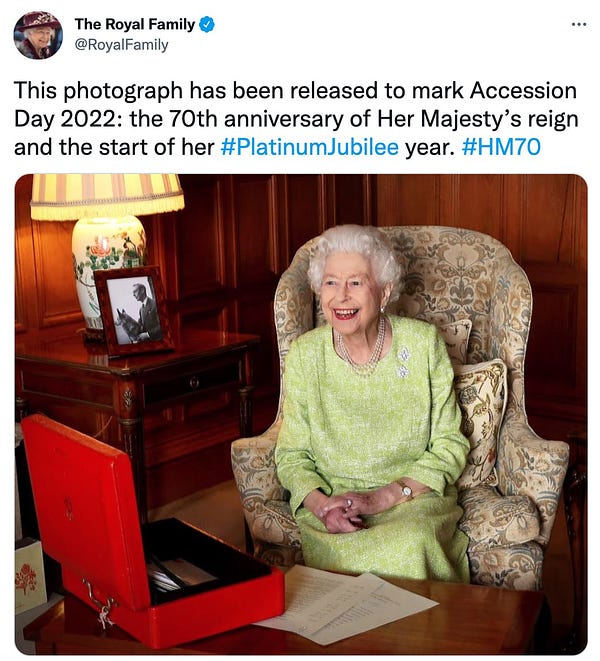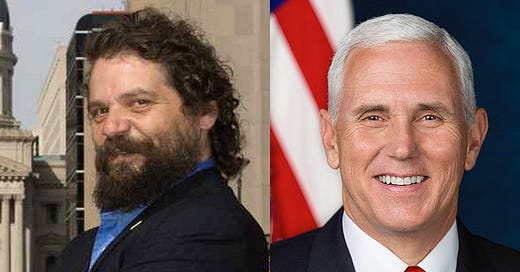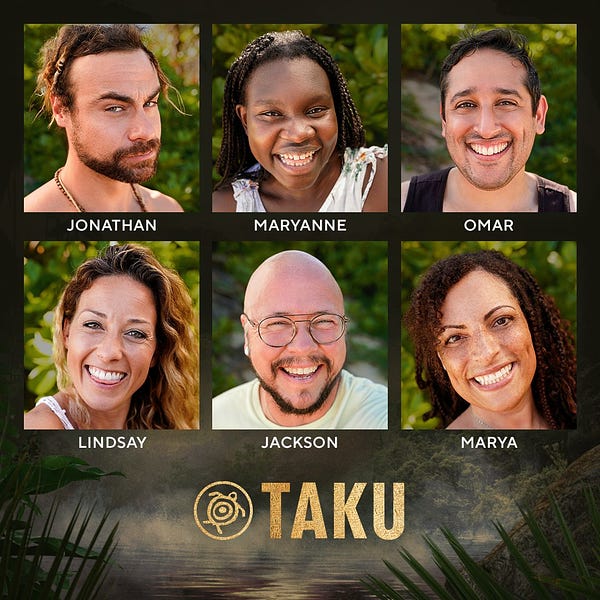Harassment and the Internet
A quiet news week during the Olympics; but the Internet abhors a vacuum.
The Internet did not cause the invention of harassment. I do not believe it has even particularly increased the total amount of harassment by humans on planet Earth.
What it has done is twofold: first, it makes that harassment more visible and measurable. Second, it focuses that harassment, particularly on semi-public figures.
And, occasionally, Internet sites accidentally create a “harass someone” button that says “free cake” on the label.
But first, the week’s news:
Olympics: The Olympics (well, the Winter Olympics) are going on this week. I’m not watching. However, it does make for a slow news week elsewhere.
A Genius in Miniature: Donald Trump has come out with a book. Perhaps befitting his tenure, it is a picture book (well, more politely, a coffee table book) with tweet-length captions written by the former president. It has apparently sold out its first edition run of 200,000 copies at $75 each, and due to a supply chain shortage1 is currently unavailable for sale.
The jokes write themselves here, but this is actually a brilliant move by Trump. There is probably more valuable historical information in the short captions than there would be in hundreds of pages of sanitized prose on meetings with diplomats. It’s also less effort for Mr. Trump. And, as has been often remarked but rarely appreciated, Trump was always the president for those who would prefer to look at pictures than read a 300 page book.
Micro Grants: I have linked to Scott Alexander’s micro-grants program before. Now we have a post-mortem, with the conclusion that he would rather let someone else do the work. Unfortunately for the Newslettr, “let someone else do the work” was our plan in the space.
SIGINT: A tweet about a document in a photo of Her Majesty Queen Elizabeth II went viral this week. Due to the meme ending of the tweet thread, it is ineligible for Tweet of the Week.


A few notes: that document in tweet 2/6 looks to me like an “official itinerary” with times and descriptions of press availabilities. The Crown Office has been staging photographs since the dawn of the age of photography, and certainly knows how to do it properly. While these types of leaks can certainly occur in fiction (“Quiet Bat People”), I am unaware of an important example of it occurring in real life (other than some intentional leaks of the sort).
But: this type of thing can be done, and if somebody does it with a photo of yours, they are unlikely to tell you by advertising the fact on the front page of the local newspaper.
Tweet of the Week: Noah Smith collects iconic images of the last 5 years. A few are anti-iconic (i.e. dumb memes you have seen 950 times), but overall the choices are solid (at least the first 35).
A Tweet from Nobody
When a person with 2k followers gets 100k likes for a Tweet, you should always question the accuracy of that tweet. In particular, one tweet that went viral this week looks like a bold-faced lie.
As the account has switched between public and private, we will not identify them here — but the claim is that they have paid around $1000 per month for 5 years with almost no impact on a principal of $120k for undergraduate student loans.
Most student loans are backed by the government, and government undergraduate loans have a 3.7% to 6% interest rate (and with COVID, a temporary 0% rate), not the 10% rate implied here. While it is possible this person found a back-alley loan shark who offered a loan that should be illegal, it is more likely the math is pure fiction.
As a reminder, the Yevaud Newslettr is violently opposed to the suggestion that these types of stories (even if true) would prove we need universal free college.2 But that is not our point today.
Our question today is: is [name of non-public figure withheld] a public figure?
Of course, when I phrase it that way, the intended answer is quite obvious. But when it is phrased “is the person who just went viral on Twitter a public figure” the question is more difficult.
Semi-Public Figures
The question of “who is a public figure” is difficult, and in a formal sense impossible. There are gaps between “public figures” and “non-public figures”.
Most people, most of the time, can rely either on the “I know it when I see it” test, or the “let somebody else figure it out” test. Kim Kardashian is a public figure, and my neighbors are not. If you are a Blue Check on Twitter, you are probably either a journalist3 or a public figure. Twitter relies on a multi-pronged test for Verified status, including “do you have a Wikipedia4 article”.
Two of the most difficult classes of people to assess are reality TV participants, and candidates for public office.5
The TV show Survivor did not invent Reality TV as a genre, but it did invent6 the phenomenon of Reality TV contestants becoming famous. The first season of Survivor was filled with people who did not expect this. The second season had cast members who did expect this, including a young Elisabeth Hasselbeck (who went on to spend a decade hosting The View). Since then, all the depths of the internet have gazed upon on cast members, in various ways7.
When we look at the cast of Survivor 42, are these public figures? In some senses of the word, yes: they are appearing on a nationally broadcast TV program as a full-time performer, and cannot expect to be referred to by circumlocution rather than name. On the other hand, they are generally not members of the Screen Actors’ Guild. Before today, nobody had heard of them.
Ten years from now, it may be possible to pin-point who among them is a “public figure”. But today, we just don’t know.
There is a similar issue with candidates for political office.
At a certain point, the prominence of the office being sought and the likelihood of the candidate winning mean that a candidate becomes a public figure — and must accept they may be the subject of attack ads on television. For other political offices (perhaps a county water commissioner), it is often a struggle to find even one qualified candidate interested in the job, and “you must be a public figure” is not always part of the job description.
The thresholds are, once again, “formally impossible” to define. You can try to come up with a rule like “if you get >15% of the vote and more than 5000 votes” … but that won’t work before the election, and any threshold you define will have exceptions anyhow.
Semi-Public Figures and Harassment
To a certain extent, “harassment of public figures” is a solved problem. Barack Obama, JK Rowling, and Curt Schilling need not worry about harassment — they hire someone to handle it for them.
To a certain extent, “harassment of private figures” is a solved problem. It is, generally, minimal enough to be ignored. And when it can’t be ignored, the harassment is generally illegal in some way.
Somewhere in the middle, both approaches fail catastrophically.
Occasionally, one ends up with a person who falls into multiple “semi-public” categories. And at that point, one answer is simple: once your situation becomes complicated enough, you are presumably8 a public figure.
That is where we find Eliza Orlins, who in addition to being a reality TV personality and a political candidate, is also a woman and a lawyer. It is hard to imagine anyone else in the United States being more familiar with Internet-based harassment.
When she speaks on the topic of harassment, Twitter should listen:

It is important to note that the phrasing “when she speaks, Twitter should listen” can have two meanings. Sometimes, it is code for “I agree with her and I think it is fairly obvious why”. That says too much here. In this situation, she simply has a perspective that Twitter insiders may not be sufficiently aware of.
And I am told Ms. Orlins is very polite, is a member of the Bar of New York State, and has never attempted to build an underground shelter on a beach. If any Twitter folks are interested, her DMs are open.
I can’t quite transcribe the “wink” that goes along with the term “supply chain issues” these days. It’s basically understood that it is a euphemism for “shortages”, “incompetence”, or “inflation-related pricing issues”.
If anything, the conclusion is “people like [name withheld] should be legally prohibited from attending college”. I assume that idea would have so much pushback that I will not argue it unless the adversary is Thunderdome qualified. As I said, violently opposed.
For a variety of reasons, any employee of a media company (the New York Times, CNN, etc.) who tweets as a reporter for that company will have a verified account, even if they are not otherwise a public figure.
For a variety of reasons, we are unable to comment directly on the question “when does a person have a Wikipedia article” here.
Most public figures today are active in the fields of Entertainment, Sports, or Politics. But there is a well-established system for aspiring athletes, while new entertainers and politicians can appear out of nowhere. And while sometimes academics and businessmen are public figures, you may actually need a Nobel Prize or multiple billions of dollars to do so (unless you have a flair for an entertaining public profile).
Perhaps the gestalt term {invent|discover} would be more accurate.
The phenomenon of “fan fiction” has moderated in intensity and behavior over the past 15 years. I expect Twitter has helped this; weird teenagers are less likely to write fiction about Survivor contestants when they consider “messaging them on Twitter” a live possibility.
If one takes enough active steps to avoid personal attention (such as not having a Twitter account), maybe one would not be a public figure.








